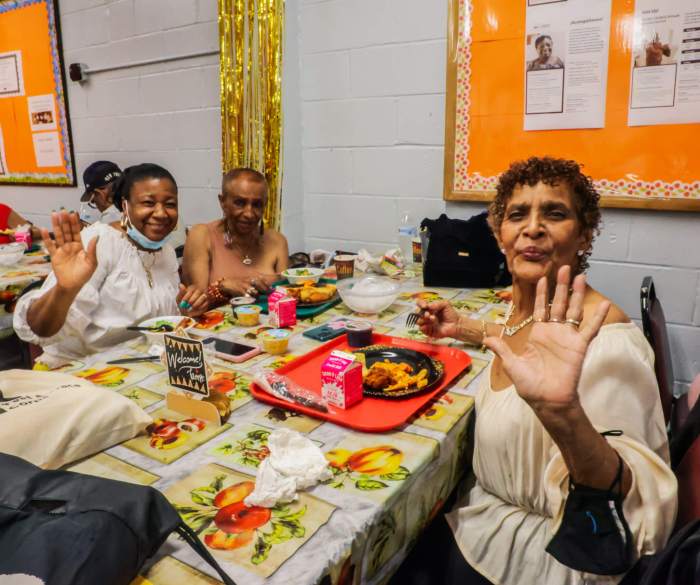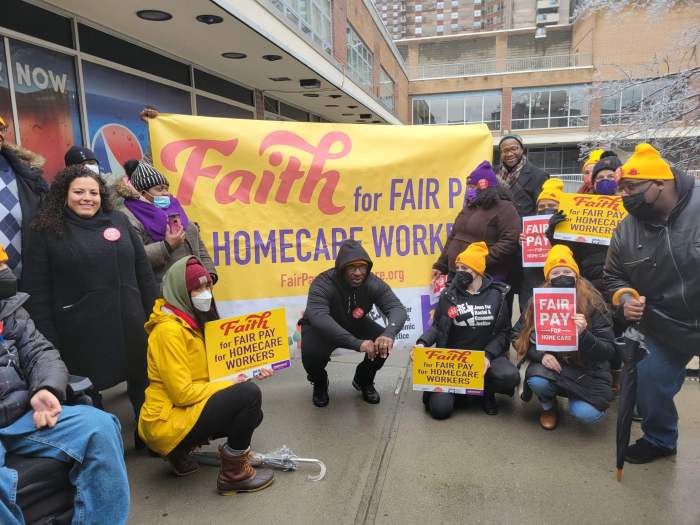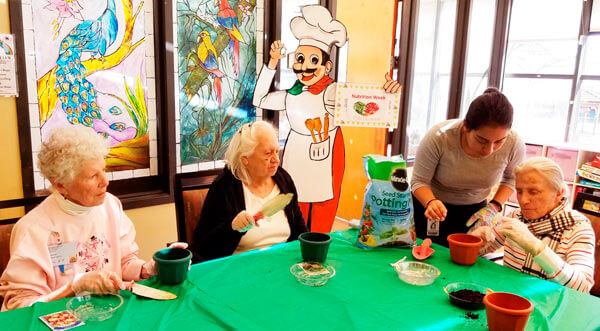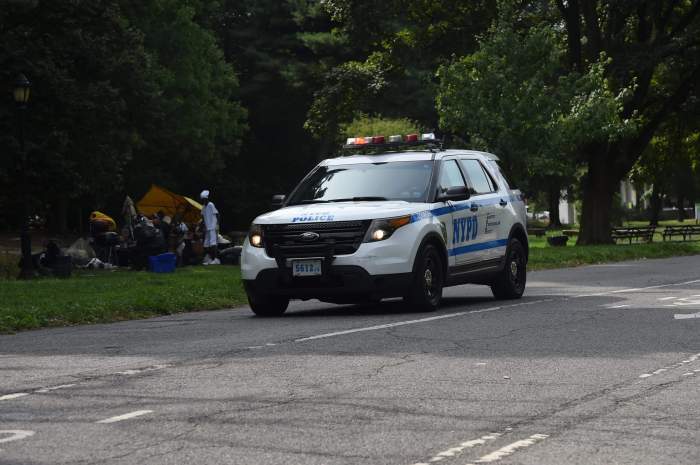New York currently faces the worst home care workforce shortage of all 50 states with more than 40% of the state’s home care workers living in or near poverty due to chronically low wages and 57% relying on public assistance, according to a March 2021 CUNY report.
A large chunk of New York City’s home care workers live in City Councilmember Rafael Salamanca Jr.’s South Bronx district, and last week, a group of home care workers denounced the councilmember’s revoked support for a City Council bill that would end the 24-hour workday for home attendants, mandating that all 24-hour shifts be split into two 12-hour shifts while also capping the maximum number of hours worked for home attendants to 50 hours per week.
Home health aides perform all aspects of personal care for sick or homebound patients and frequently work long shifts lasting up to 24 hours. The tasks performed in caring for patients are demanding and can consist of assisting or lifting patients out of bed and bathing, dressing, grooming, preparing meals for and, in some instances, feeding them.
Home care workers and advocates for the bill say that No More Act 24 — sponsored by Manhattan Councilmember Christopher Marte and previously co-sponsored by Salamanca — would “end” the racist violence of the 24-hour workday that affect a workforce primarily comprised of Latina, Black and other immigrant workers.
“No chains are needed for slavery today. It continues in the 24-hour system and it is disguised and maintained by politicians like Salamanca,” said Marcola Guzman, home care worker who has worked 24-hour shifts for 9 years and lives in Salamanca’s district. “Salamanca is maintaining a system that steals our lives and our sweat, and is racist.”
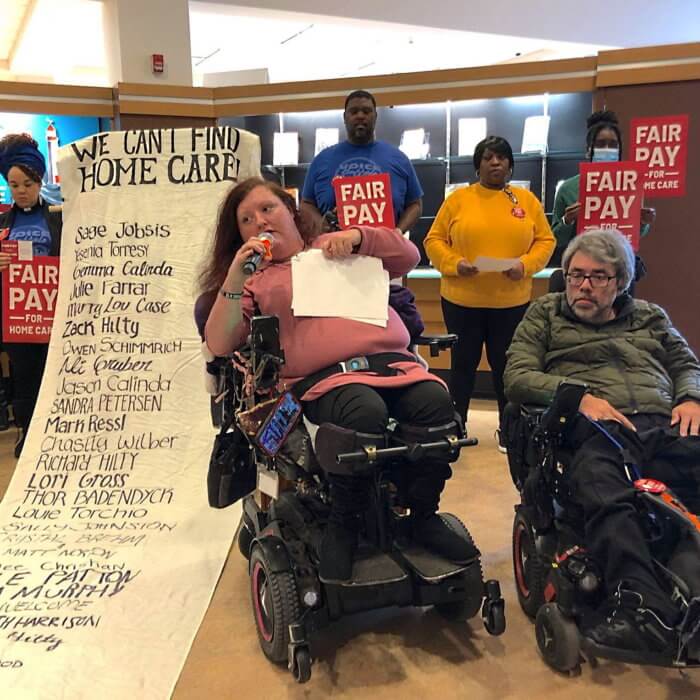
Patients may suffer from physical or mental disorders that can make the work of the aides physically and emotionally taxing.
Brian Hetely, chief of staff for Salamanca told the Bronx Times the councilmember’s decision to revoke support of the bill was due to concerns listed by one of the state’s leading voices on health, longtime Manhattan Assemblymember Richard Gottfried. In a May letter from Gottfried to Marte, the assemblymember noted that he was concerned that the bill would strip essential care for home care patients in need of around-the-clock care.
“Were your bill to become law, home care agencies that receive these authorizations would be forced to violate state contracts or face fines,” he said.
Marte’s bill does stipulate that a home care aide could be assigned additional hours in the event of an emergency. By 2040, New York is expected to see massive growth in its aging population with estimates of a 25% increase in the 65-and-over population and a 75% boom in the age 85 and over bracket.
In the upcoming legislative sessions, home care workers and advocates are hoping to build on momentum of pay raises from Gov. Kathy Hochul of $2 an hour this year and another $1 increase next year. Gottfried, in his letter, voiced support for another home care bill, The Fair Pay for Home Care Act.
The Fair Pay for Home Care Act would require that home health and personal care aides be paid at least 50% more than the minimum wage for their region – totaling to $22.50 an hour in the city and $19.80 upstate– for a workforce that is currently 90% women, 67% immigrants and 75% women of color.
However, opponents contend the legislation is costly and does not address deeper problems in the state’s home care industry.
The Consumer Directed Personal Assistance Association of New York State identified that low pay was leading to an exodus of home care workers and a quarter of consumers – seniors and disabled people poor enough to live on Medicaid – feel the need to supplement worker wages out of their own pocket to try to keep their staff.


















